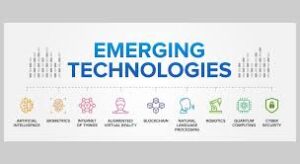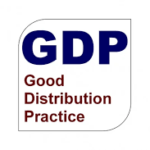Boosting Business Growth with Emerging Technologies
In the fast-paced world of business, companies need to stay ahead of the curve to survive and thrive.  One key way to do this is by utilising traceability data and emerging technologies to boost growth. In this blog, we’ll explore what traceability data is, how it can help your business, and the emerging technologies that are shaping the future of traceability.
One key way to do this is by utilising traceability data and emerging technologies to boost growth. In this blog, we’ll explore what traceability data is, how it can help your business, and the emerging technologies that are shaping the future of traceability.
First a quick plug – Our sister companies ‘Fresh Logistics‘ whom are Refrigerated Couriers and ‘Fresh Fridge Hire‘ are out (compliant GDP) refrigerated vehicle hire
Introduction
In today’s highly competitive business landscape, it’s more important than ever to utilise all the tools at your disposal to boost growth. One key tool that many businesses overlook is traceability data. By leveraging the power of traceability data and emerging technologies, businesses can gain insights into their operations that were previously impossible to obtain. This can lead to improved efficiency, increased profitability, and ultimately, sustained growth.
What is Traceability Data?
Traceability data is data that tracks the movement of goods and products throughout the supply chain. This can include everything from raw materials to finished goods, and can provide valuable insights into the efficiency and effectiveness of a company’s operations. Traceability data can be collected through a variety of means, including barcodes, RFID tags, and GPS tracking.
The Benefits of Traceability Data in Emerging Technologies
The benefits of traceability data are numerous. For one, it allows businesses to track the movement of goods throughout the supply chain, providing valuable insights into the efficiency of their operations. This can lead to improved logistics, reduced waste, and increased profitability.
Traceability data also enables businesses to identify and mitigate supply chain risks. By tracking the movement of goods, businesses can quickly identify issues such as delays, bottlenecks, and quality control problems, and take steps to address them before they become major issues.
Finally, traceability data can help businesses improve their relationships with customers. By providing real-time information about the movement of goods. Businesses can improve communication with customers, build trust, and ultimately, increase customer satisfaction.
Emerging Technologies in Traceability
As technology continues to evolve, so too do the possibilities for traceability. Here are just a few of the emerging technologies that are shaping the future of traceability:
Blockchain
Blockchain technology is already being used in supply chain management to improve transparency and traceability. By using a decentralised ledger to track the movement of goods, businesses can ensure that data is secure, tamper-proof, and accessible to all parties involved in the supply chain.
Emerging Technologies of the Internet of Things (IoT)
The Internet of Things (IoT) is also playing a major role in traceability. By using sensors and other connected devices to track the movement of goods,. Businesses can gain real-time insights into the status of their operations. This can lead to improved efficiency, reduced waste, and increased profitability.
Artificial Intelligence (AI) revolutionised Emerging Technologies
Artificial intelligence (AI) is also being used to improve traceability. By using machine learning algorithms to analyse traceability data, businesses can gain insights into their operations that were previously impossible to obtain. This can lead to improved efficiency, reduced waste, and increased profitability.
Mobile phone apps increase accessibility to traceability?
Mobile phone apps have revolutionised the way businesses manage and share traceability data. With the increasing use of mobile devices, businesses can easily collect and track information on their products and operations in real-time, making it easier to identify and address issues along the supply chain.
One of the main benefits of mobile phone apps is their ease of use. Apps can be downloaded and used on-the-go, making it easier for businesses to collect data from multiple sources and share it with partners along the supply chain. Additionally, many apps provide real-time alerts and notifications, allowing businesses to quickly respond to any issues that arise.
Another benefit of mobile phone apps is their ability to improve data accuracy. By using automated data collection methods and integrating with other systems, apps can reduce the risk of manual errors and ensure that data is up-to-date and accurate.
Mobile phone apps can also improve collaboration and communication along the supply chain. By sharing traceability data in real-time, businesses can work together to address issues and identify opportunities for improvement. This can lead to increased efficiency, reduced waste, and enhanced quality throughout the entire supply chain.
In conclusion, mobile phone apps are an important tool for businesses looking to increase accessibility to traceability data. With their ease of use, improved data accuracy, and ability to improve collaboration and communication, mobile phone apps are a valuable asset for businesses seeking to optimise their operations and boost growth.
Reduction in costs of Apps
The increasing use of mobile phone apps is due to the reduction in costs with development and deployment. In the past, businesses would have to invest significant resources in developing custom software. Hiring IT professionals to manage their data collection and management processes. However, the advent of low-code and no-code app development platforms has made it easier and more affordable for businesses to develop and deploy apps on their own.
Low-code and no-code platforms provide pre-built components and drag-and-drop interfaces. Thus allowing users to create custom apps without needing extensive coding knowledge. This has significantly reduced the costs associated with app development, making it accessible to businesses of all sizes.
Furthermore, the proliferation of cloud-based app deployment has further reduced costs by eliminating the need for businesses to invest in expensive hardware and infrastructure. With cloud-based apps, businesses can deploy their apps on a subscription basis, paying only for the resources they use.
The reduction in costs associated with app development and deployment has made it easier for businesses to collect and manage traceability data, leading to increased adoption of traceability technologies. This, in turn, has led to improved supply chain visibility, increased efficiency, and enhanced product quality.
Conclusion
In conclusion, traceability data and emerging technologies are playing an increasingly important role in the world of business. By leveraging the power of traceability data and the latest technologies,. Businesses can gain insights into their operations that were previously impossible to obtain. This can lead to improved efficiency, increased profitability, and sustained growth.












